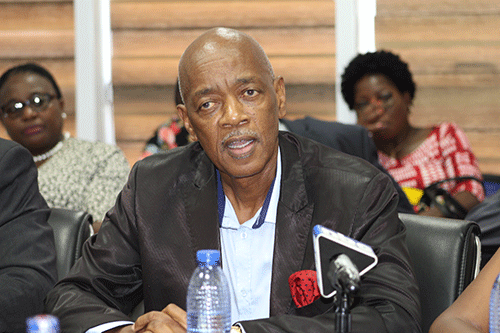On a Sunday afternoon, 14 July 2024 to be exact, I made what I thought was a random call.
We had just come back from the funeral of our then last surviving matriarch, Sukoo Kavari, a week earlier. At that funeral, some of the elders of the clan and I were teaching the youngsters about our maternal lineage.
Reference was made to one of our grand-uncles, Hiyandomba, who had fled to Botswana during the 1904-1908 Ovaharero uprising against German colonial rule.
It was then that I decided to make a random call to a dear friend who grew up in Botswana; that friend happened to be Kahengua. I was trying to trace the “footsteps” of uncle Hiyandomba. Kahengua did not only confirm that he knew our late uncle, but he went on to say that they had lived in the same Boteti District.
Kahengua managed to connect me to our uncle’s only surviving daughter, the grandchildren and some of the great-grandchildren. The emotions that all of us felt about that “re-connection” were just beyond words.
What does this personal story have to do with other Namibians? About three years ago, the Goethe Institute in Windhoek organised a round-table discussion on the genocide debate.
The setting was very informa,l and since it was during the winter, participants sat around a fireplace in the yard – to create a fireplace-story-telling atmosphere. There were Namibians from different cultural backgrounds, including Namibians of German origin.
The contributions from some of our German brothers and sisters were really surprising; if not shocking, to say the least.
Most of them argued along the following lines: Namibia was the largest per capita recipient of German development assistance in Africa, and therefore there was no need to seek reparations for the affected communities; we should close the chapter on the sad genocide history, and forge ahead as a nation, etc.
I realised that we were living in two different worlds, with at least some of them, and I therefore decided to take the floor. I first commented on an article that had been published by a prominent Namibian of German origin who had argued that ‘…. some of the German soldiers showed clemency to their captives because instead of shooting them, they took them to the concentration camps.’ I had responded to that newspaper article prior to that meeting, and time does not allow me to comment on my response here, suffice it to say that even a high school student would be able to see through the shallowness of such an argument.
I then went on to say that I did not have to learn from textbooks what the Germans had done against our people because for me, it was a lived experience.
Having grown up at Okei
village in Otjinene constituency – about 20km from Ozombu zo Vindimba where Von Trotha had given his extermination order – picking up spent German bullet cartridges was almost as common as picking up a rock.
Secondly, my own father was born, raised and buried in Botswana as a descendant of a people who had not gone to Botswana on holiday; but who had fled under the most trying of circumstances.
To crown it all, my mother was born to an Omuherero mother and a German father. When she was born, the wife of her German father came to warn my grandmother that her husband was planning to kill the baby. My grandmother had to flee under cover of darkness to save the baby.
Back to ‘that historic phone call’. Some of my newly-discovered relatives in Botswana hardly speak Otjiherero, they have intermarried and mixed with Batswana, and Setswana is their first language. Among the few that speak the language, some of them speak with a foreign accent.
I am not against marriages across the ethnic divide. However, it is the historical circumstances that had given rise to the loss of language and culture that I am interrogating here – even some of their Otjiherero surnames are wrongly spelled. Anthropologists would refer to the loss of language and culture due to colonial oppression as cultural genocide.
This is not only my story, but also our story as Namibians and as Africans. In a song dedicated to the suffering caused by the Transatlantic Slave Trade, the legendary reggae singer Bob Marley was to sing: “Two thousand years of history; black history, could that be wiped out so easily?”
Discovering close relatives that you did not know existed more than 100 years later, is certainly not by any stretch of imagination a small matter. Won’t you help me to sing Bob Marley’s song?
*Gerson Uaripi Tjihenuna


